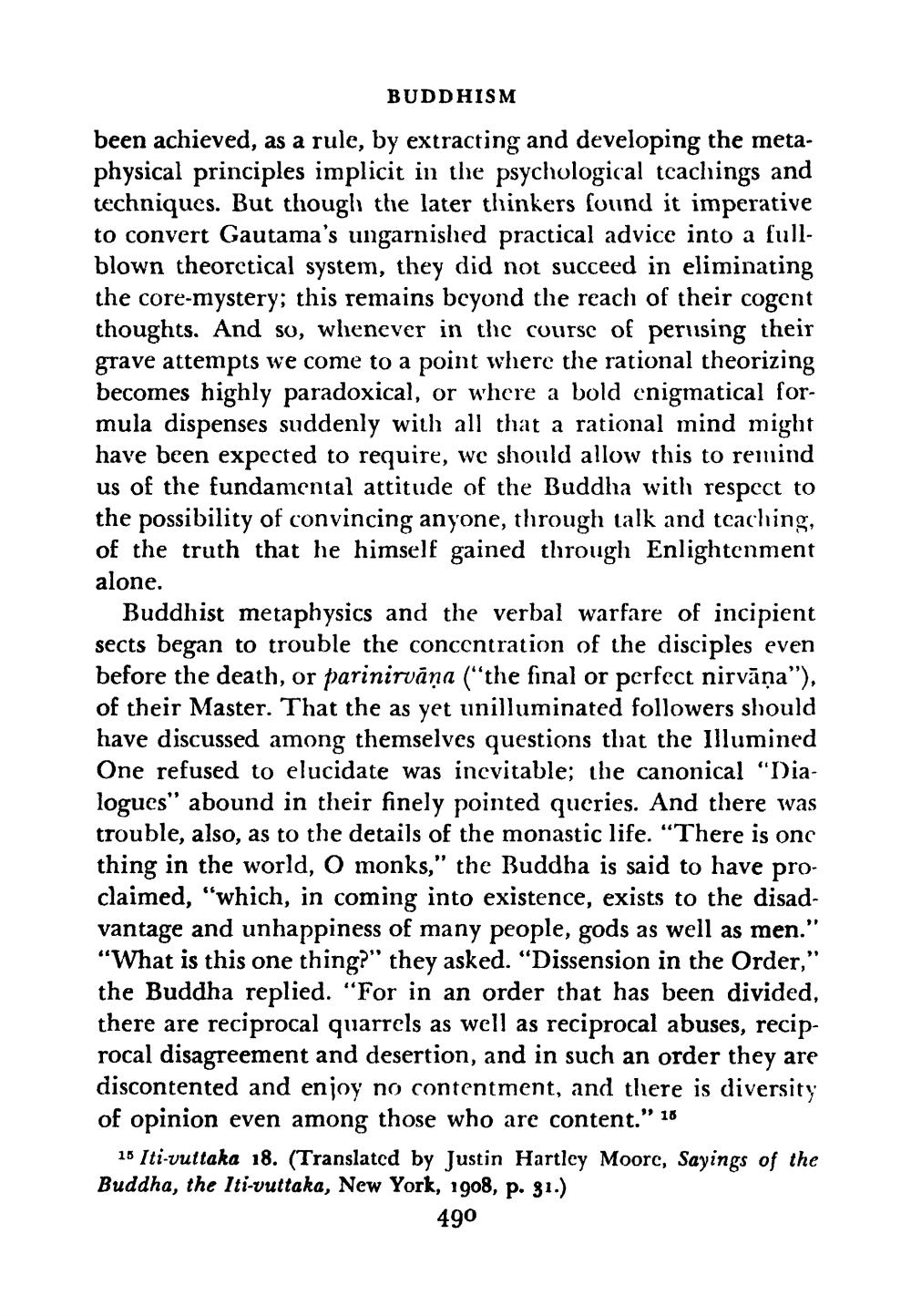________________
BUDDHISM been achieved, as a rule, by extracting and developing the metaphysical principles implicit in the psychological tcachings and techniques. But though the later thinkers found it imperative to convert Gautama's ungarnished practical advice into a fullblown theoretical system, they did not succeed in eliminating the core-mystery; this remains beyond the reach of their cogent thoughts. And so, whenever in the course of perusing their grave attempts we come to a point where the rational theorizing becomes highly paradoxical, or where a bold enigmatical formula dispenses suddenly with all that a rational mind might have been expected to require, we should allow this to remind us of the fundamental attitude of the Buddha with respect to the possibility of convincing anyone, through talk and tcaching, of the truth that he himself gained through Enlightenment alone.
Buddhist metaphysics and the verbal warfare of incipient sects began to trouble the concentration of the disciples even before the death, or parinirvāņa ("the final or perfect nirvāņa"), of their Master. That the as yet unilluminated followers should have discussed among themselves questions that the Illumined One refused to elucidate was inevitable; the canonical "Dialogues" abound in their finely pointed queries. And there was trouble, also, as to the details of the monastic life. “There is one thing in the world, O monks," the Buddha is said to have proclaimed, "which, in coming into existence, exists to the disadvantage and unhappiness of many people, gods as well as men." "What is this one thing?" they asked. “Dissension in the Order," the Buddha replied. "For in an order that has been divided, there are reciprocal quarrels as well as reciprocal abuses, reciprocal disagreement and desertion, and in such an order they are discontented and enjoy no contentment, and there is diversity of opinion even among those who are content." 18
15 Iti-vuttaka 18. (Translated by Justin Hartley Moorc, Sayings of the Buddha, the Iti-vuttaka, New York, 1908, p. 31.)
490




